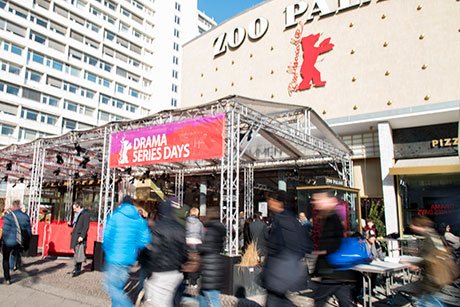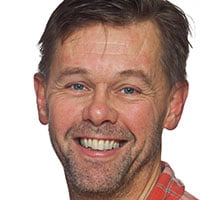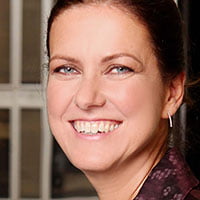Star power
Posted By Michael Pickard On 15-02-2017 @ 4:13 pm In Features | Comments Disabled

Drama Series Day at Berinale this week
The importance of big-name stars, use of local languages and ‘lazy audiences’ were all debated at Berlinale this week. Michael Pickard reports.
Reflecting Germany’s emergence on the international television stage, the small screen has demanded increased attention at the Berlin International Film Festival, aka Berlinale, since the Drama Series Days programme launched in 2015.
Two years after that inaugural event, crowds snaked through the foyer of the Zoo Palast cinema as hundreds of producers, distributors, writers and others attempted to catch screenings and panel sessions at the grand venue this week.
With more than a dozen screenings taking place during the three-day event, the red carpet was rolled out for 4 Blocks (Turner), The Same Sky (Beta Film), Below the Surface (StudioCanal), Amazon original Patriot and BBC drama SS-GB.

Beta Film’s The Same Sky was screened at the Zoo Palast
Today, the CoPro Series Pitching session saw seven series vie for production and finance partners in the audience. They included the winning series Freud, from Bavaria Fernsehproduktion and Satel Film (Germany and Austria), alongside competitors Cognition, from Catalyst Global Media and A Better Tomorrow Films (UK and US); Omerta, from Caviar (Belgium); and Metro, from Kelija (France).
The line-up was completed by State of Happiness, from Maipo Film (Norway); Hausen, from Tanuki Films (Bulgaria); and Warrior, from Miso Film (Denmark).
Talk onstage included sessions on producing global series, where executives including Pinewood Television’s Christian Wikander, StudioCanal TV’s Rola Bauer and Eleonora Andreatta, director of Rai Fiction, debated the issues facings the industry.
Topics included producing drama in English, with Andreatta stating that contemporary stories should be told in local languages to ensure authenticity and credibility, though period dramas such as Rai’s Medici: Masters of Florence can be told in English “without giving people the impression that it’s fake.”
During the same session, Prodigy Pictures’ Jay Firestone told delegates that US broadcast networks attract a “lazy audience” — people still willing to sit in front of whatever is scheduled on Wednesday at 22.00. Bauer countered by saying this year’s pilot season will see more proactive shows taken to series in a bid to wrest back viewers from SVoD platforms.
Questions were also raised about the importance of attracting top-tier talent, particularly film stars, to get new series off the ground.
Firestone revealed he would have struggled to sell 2008 miniseries XIII without Val Kilmer. “It was a condition of every sale that Val Kilmer was in every episode of the miniseries,” he admitted, before revealing he was now trying to secure an international star to take the lead in a new drama Prodigy is developing.

Christian Wikander
“Everybody loves the script. I have never had a stronger response to a script that I’ve had right now,” he told delegates. “Fox is interested, depending on the star. HBO is interested, depending on the star. I’ve had others – Canal+, TF1 – depending on the star, because it’s a female lead. Nicole Kidman read the script, liked it. I waited three months for her, CAA told me go buzz off. But I’m finding this is a very necessary element to get my coproductions up because even though they’re good stories, I need a star.”
Rai’s Andreatta then admitted Renaissance drama Medici needed star Dustin Hoffman “100%.” She added: “The product really started when we had Dustin Hoffman. As [showrunner] Frank Spotnitz was saying, no-one knows anything about the Medici. They know Dustin.”
Other sessions celebrated Berlin on screen and German prodco UFA Fiction, which will mark its 100th anniversary this year, while director Gerardo Naranjo (Narcos) bemoaned the politics of free-to-air networks in Mexico during a panel entitled New Frontiers: Creating Original Content in Mexico and Latin America.

Eleonora Andreatta
“The quality we are used to is so poor; we don’t have good television,” Naranjo exclaimed. “The country has been kept ignorant through TV – it’s the biggest political weapon we have. It’s a war and we’re losing.
“We’re about to start learning how to do quality TV. We know how to do terrible TV. It’s been a very slow revolution in film. We are as capable as any other. The problem is political; TV has been used for other reasons.”
Off stage, talk turned to money and how to measure success in the digital age. Echoing the plight of the film industry, one exec told C21 there was too much private money flowing into TV, in turn creating too many shows that weren’t then making any profit for their investors. Could this be where the bubble bursts?
With pay TV broadcasters such as Sky in the UK and HBO Europe professing to relying less on ratings to judge success (though they still play an important role), there is also the question of how viewers can best choose what show to watch next. The role of critics and other editorial – a global score card? – could play a more important role alongside broader recommendation systems akin to Netflix’s ‘Watched that? Watch this?’ algorithms.
The view from Berlin, in any case, is that the future is extremely bright, with more content being sold and produced across borders than ever before. The stage is set for a closer focus on television at Berlinale next year.
Article printed from C21Media: https://www.c21media.net
URL to article: https://www.c21media.net/star-power/
Click here to print.